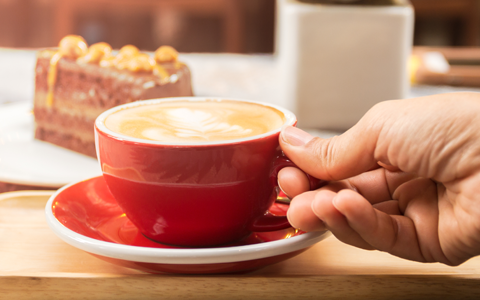Coffee Breaks Around the World
A Ritual of the Third Millennium
Morning coffee, office coffee, coffee at the train station, airport coffee, post-lunch coffee, coffee with dessert, night-shift coffee, meeting coffee, thermos coffee, camping coffee, weekend coffee, coffee during a break. Coffee has become an essential part of 21st-century life. If you’re among those who can’t imagine life without this magical elixir, here are your dream destinations—places where the coffee break is not just encouraged, but honored like an unbreakable tradition.
Surprising Facts About Coffee
You’ve heard the saying “frequent and long breaks”? They must have been talking about coffee breaks! Though it’s easy to assume coffee is the most consumed beverage after water, that honor actually goes to tea. Coffee comes in third place. Tea has a 3,000-year head start and is the national drink in both China and India, each with over a billion people. So the math checks out.
Countries Where Coffee Breaks Are Sacred
1. Fika – SWEDEN
Fika is perhaps the most famous coffee break in the world—and it’s more than just a break. It’s a deeply rooted Swedish tradition. Fika means gathering informally with friends, family, or coworkers, and it always includes three essentials: coffee, a baked good, and social interaction. It often happens twice a day, which helps explain why Sweden consistently ranks among the world’s top coffee-consuming nations. The traditional fika treat is “kanelbullar,” a cinnamon bun, but feel free to explore their irresistible bakeries for other delights.
2. Merienda – LATIN AMERICA
Can we call it a coffee break if coffee isn’t required? Merienda is the snack between lunch and dinner, the Latin version of British afternoon tea. In Argentina, a typical merienda might include café con leche and a croissant, tea with milk and a pastry, or even a “submarino”—hot milk with a chocolate bar melted inside. In summer, hot drinks are replaced with smoothies, but the coffee-croissant combo remains iconic. Versions of merienda can also be found in Spain and Portugal (“merenda”), Italy, Slovenia, and Croatia (“marenda”).
3. Gabelfrühstück – AUSTRIA, GERMANY
Literally meaning “fork breakfast,” gabelfrühstück resembles brunch. While the first breakfast is usually a quick coffee and a pastry or fruit, this second breakfast is enjoyed later at work or school and involves a more filling meal—requiring a fork. Sweet or savory, hot or cold, simple snacks or full dishes—the possibilities are endless. In recent years, “gabelfrühstück” has become less common, with the modern term “brunch” taking its place.
4. Buna Tetu – ETHIOPIA
We weren’t joking about going around the world. In Ethiopia, “Buna Tetu” simply means “let’s drink coffee,” but it’s a highly respected ceremonial tradition—performed three times a day! Always hosted by a woman acting as the ceremonial master, it begins with a ritual to dispel evil spirits. Then comes the fragrant part: coffee beans are roasted and ground on the spot to prepare three rounds of coffee. Refusing any of them is frowned upon. Ethiopians adore their coffee—strong and frequent, often 3–4 times a day. It’s no surprise Ethiopia is Africa’s top coffee producer and fifth globally.
5. Koffietijd – NETHERLANDS
The Dutch love to invite friends over for “koffietijd” (coffee time), which includes coffee and a cookie or slice of cake. It may happen at 10:00–11:00 AM, 4:00 PM, or even 7:00–8:00 PM after dinner. During the day, it’s customary to serve only one cookie per person—never more. This moderation is rooted in the Protestant culture of northern Netherlands. In the south, however, where Roman Catholicism prevails, hosts serve “vlaai”—a large pie with creamy filling, cut into eight slices, always accompanied by rich, aromatic coffee.
6. Cafezinho – BRAZIL
More than a diminutive of “café,” “cafezinho” in Brazil is practically a synonym for “Welcome!” As soon as you walk into a Brazilian home, you’ll hear: “Você toma um cafezinho?” (“Would you like a little coffee?”)—and refusing is nearly impossible. Sometimes, it’s served before you even answer. Coffee is a bonding ritual in Brazil. Even during business meetings, cafezinho is served, and conversations often shift into pleasant, unrelated topics. A reminder that coffee is not just about flavor—it’s about people and the joy they bring to each other over a shared cup.


